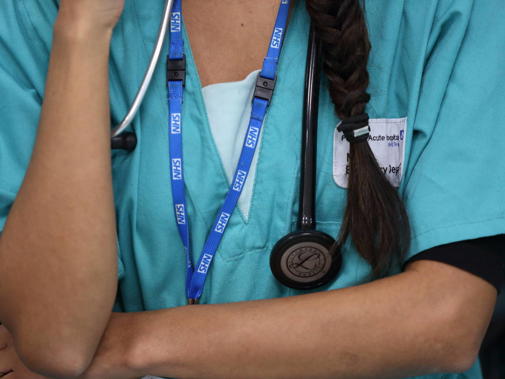In the year since lockdown began, while most of the public have done their duty by staying home, thousands of junior doctors in England have spent their days on the frontline in the fight against COVID-19.
The toll this has inflicted has been terrible. There have been days spent on COVID wards with no end in sight, redeployments into unfamiliar departments against a backdrop of ill-fitting or non-existent PPE that has left doctors fearing for their safety. And then there are those who, in the course of their work, have been infected with COVID itself, many of whom are still dealing with its long-term impact.
The pandemic has not just taken a physical toll on junior doctors. According to the BMA’s latest survey, the pandemic has left 42% of junior doctors with feelings of depression, anxiety and burnout, while 60% say their levels of fatigue are higher than normal.
The Government’s response has been one of kind words, clapping on the steps of Downing Street, and an announcement that healthcare workers in England will receive a 1% uplift in their pay this year. This is nothing more than an insult to all doctors, nurses, and our other vital colleagues across the NHS who have given their all, their health, and for some, their lives in the fight against COVID-19.
England has been in the grip of a virus that left more than 460,000 people hospitalised and seen more than 127,000 sadly lose their lives. This is the reality that has confronted junior doctors daily. Yet, the Government claims its 1% uplift is ‘fair’. It is anything but.

Unlike our consultant or salaried GP colleagues, junior doctors in England are guaranteed at least a 2% uplift, as part of the multi-year deal which included changes to rostering limits to improve doctor and patient safety, agreed in 2019. This, on top of the additional £90m that was invested in the junior doctor contract to fund other pay related elements, brings the total investment to 3%, and demonstrates the strength of the contract we have negotiated – but this has been no ordinary year. The impact of a global pandemic upon our profession could not have been foreseen. And despite the success of the changes introduced in 2019, they come off the back of a 23% real-terms decline (RPI) in the estimated take-home pay of the average junior doctor in England from 2008/09 to 2019/20.
As a result, I know that members expect the DDRB (the Doctors’ and Dentists’ Pay Review Body) to recommend, and the Government to accept, a significant pay uplift for ALL doctors, including junior doctors. A substantial pay award this year is the only fair reward for a profession that has gone above and beyond in response to incredible demands on the health service.
As the framework we agreed in 2018 states, the ‘DDRB terms of reference allow them to make further recommendations or observations should one of the parties request it, or indeed where they consider it appropriate’. This year, we have requested it and we feel it is more than appropriate.
That is why we are launching our campaign as part of calling for Fairness for the Frontline, to demand recognition that all doctors – including doctors who had previously agreed multi-year pay deals – have gone to extreme lengths to tackle the pandemic and that they should be rewarded as such.
Sarah Hallett is chair of the BMA junior doctors committee

